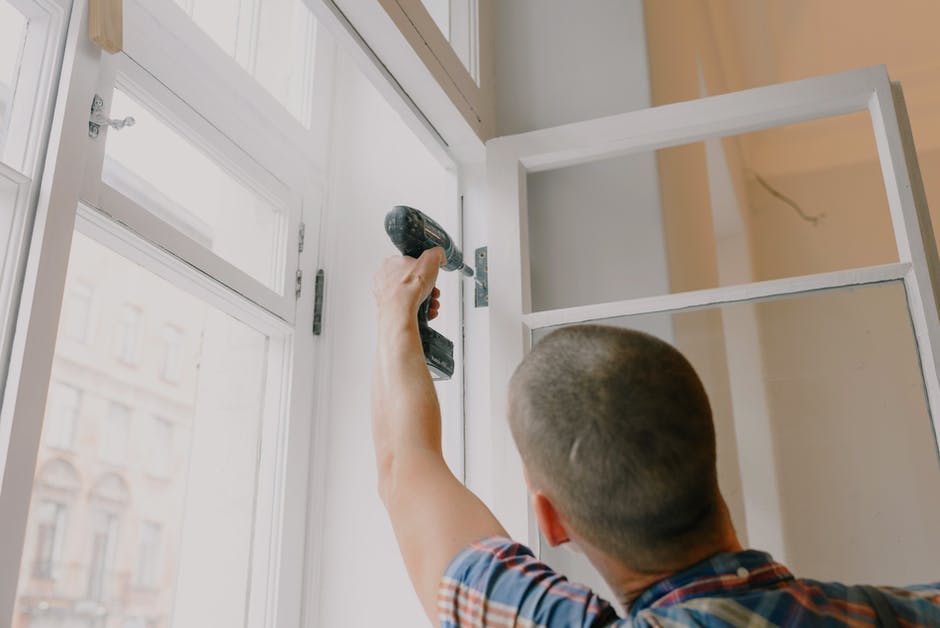On average, a window on a home can last up to 30 years before it needs replacing. Are you searching for replacement windows, but not sure which type of glass to choose?
Window glass types have probably evolved since you last needed to purchase them. Find out what’s available on the market for your new window glass replacement. From traditional single panes to energy-efficient triple glazing, the options are endless.
Window remodeling can be overwhelming and costly. But our easy-to-understand guide provides helpful tips about where each kind of window is best suited and what factors need consideration when making a purchase decision.
Explore these window glass types to help you find the right fit for your needs and aesthetics. Read on to find out more.
Different Window Glass Types
Window glass comes in various forms, each of which offers different benefits.
Whether you’re considering new home windows or need to repair broken window glass, it’s important to understand the types of glass available and their advantages.
Here’s a look at some of the most common window glass types and what you should consider when starting your project.
Float Glass
Float glass is an ideal material for window construction and remodeling. It gets its name from the way it’s made. This type of glass is created by floating molten glass on a bed of molten tin to produce large, flat panels. Float glass is widely available as a replacement material for window installations and renovations.
This process results in the smoothest possible surface, making it an excellent choice for windows and other home design applications. Float glass has many benefits, including:
- Strength and durability
- Low cost compared to other materials
- Versatility in terms of design options
Insulated Glass
Most people are keen to save on energy bills and keep their homes warm. If that’s you, then you might want to consider using insulated glass windows.
These windows have two or three panes of glass with argon gas in between. This special design allows them to keep the heat in during cold months and the heat out during warmer weather. The glass can also be laminated or tempered for added security.
Additionally, a special component prevents moisture buildup in between the panes, avoiding that foggy look. Keep in mind that not all insulated glass windows are equal, so make sure to look for those with the best energy efficiency ratings to maximize your savings.
- Best glass for insulation
- Can help to bring household bills down
- Won’t fog up
Low-E Glass
Low emissivity is also referred to as Low-E glass. It’s coated in a special material that reflects thermal radiation. This means that during the summer, heat will be directed away from your home. In the winter, your indoor heat will be reflected back into the house instead of escaping through the windows.
Like with insulated glass, this can significantly lower your heating and cooling costs in the long run. However, some Low-e coatings can cause tinting over time. Be sure to check samples in person to make sure you’re happy with the way the glass will look installed in your home. While Low-e glass can be a pricier option, the energy savings can make it worth the investment.
- Insulates the home
- Can be a financial investment in the long term with reduced bills
Safety Laminated Glass
Laminated glass offers enhanced security and strength. This type of glass is created by sandwiching at least two panes together with an inner layer of PVB (polyvinyl butyral).
To create this panel, the two pieces of glass are fused together through a high heat and pressure fusion process. Laminated glass is often used when safety or security is a concern, as it will stay in the frame even if broken. It’s so strong that this laminated glass technology is the same type of material you’ll find in your vehicle’s windshield.
It protects from shards of glass when faced with impact. It’s also an energy-efficient option as it helps to control both heat transfer and sound. And because the PVB layer absorbs UV rays, it also helps to limit fading of furnishings and curtains.
- Stays within the frame when broken so no shards
- Protecting from UV rays
- Can absorb some sound
Obscured Glass
Obscured glass is an ideal choice for areas that require privacy but still require natural light. This type of glass allows light to enter but makes it difficult to see through the window. This can be due to patterns on the surface or the finish. These patterns could be frosted, etched or even coated for added privacy.
Obscured glass is used in bathroom windows, shower doors, and entry door areas as it provides enough privacy while also letting natural light in. Keep in mind that each type of glass is designed differently and will offer different levels of privacy.
- Allows privacy and natural light
- Available in various levels of privacy
- Wide range of surface patterns and finishes
Tinted Glass
If you’re looking to add a touch of style to your windows, tinted glass might be the right choice for you.
Tinted glass refers to any type of glass that has color added to it. This can serve several purposes, such as adding privacy or reducing heat from sunlight. Tinted glass is also a form of protection against harmful UV rays.
You might have seen it before on vehicles or decorative panels, but it can also be used on external windows to increase privacy.
- Protection from UV rays
- Give privacy
- Available in a wide range of colors
Annealed Glass
Annealed Glass undergoes a careful process known as annealing. This involves slowly cooling the glass down to strengthen it and reduce stress on the material.
Aannealed glass is not recommended for windows as it is not as safe as other options. If it breaks, it will shatter into large, sharp pieces. It is best used for interior applications such as panels, shelves, and other decorative options.
- Suitable for interior decoration
- The process of annealing makes it slightly stronger than regular glass
- Will shatter on impact
Tempered Glass
Tempered glass is a popular option for those seeking strength and safety. It’s actually annealed glass that has been treated to become four times stronger.
During the tempering process, the glass is heated to extremely high temperatures and then rapidly cooled. The result is glass that is less likely to break or shatter. Additionally, tempered safety glass is often used in car windows or any house window that you may want an easy escape in an emergency situation.
- 4x stronger than annealed glass
- Good for use on an emergency exit route
Mirrored Glass
Mirrored Glass is a type of window glass that is coated with a layer of metal on one side, giving it a reflective surface that mimics a mirror. It is mostly used for decorative purposes, such as on furniture, walls, and doors.
It is not commonly used for exterior window glass as it may not provide the necessary protection from external elements. The metal coating is also protected with an extra sealant to ensure durability and longevity. If you’re looking for a window glass type that will add more aesthetic value to your interior space, mirrored glass is your best bet.
- Has a mirror-like aesthetic
- Better used for interior windows or decorative purposes
Choosing the Best Glass for Privacy and Appearance
If you value both the way your windows look and your privacy, choosing the right type of window glass can provide you with an ideal solution. Here are the best options:
- Tinted Glass
- Obscured Glass
- Etched Glass
- Stained Glass
- Mirrored Glass (although not for exterior use)
- Glass Blocks
Choosing the Best Glass for Noise Reduction
When two or more window panes are sealed together with a putty or similar material where the glass meets the border, it is called glazing. This is often done in windows that have double or triple panes and is important for energy efficiency.
The glazing in modern windows helps to reduce heat transfer and noise by trapping air or gas between the panes. This maintenance procedure can also seal up small cracks that allow sound to pass through, which can extend the life of your windows. It’s a useful option for those living in noisy urban areas who want to reduce outside noise levels.
Need Help Choosing the Correct Glass?
We’ve covered lots of window glass types in this article explaining their properties and uses. When it comes to choosing window glass, there’s no shortage of options available. From stained glass for aesthetics to double panes will help reduce sound levels.
If you need help choosing the right window glass for your home, get in touch with Complete Window Care today. Not only do we offer the best window glass repair service, but we also have years of experience in installing and maintaining windows so we can make sure you have a great-looking window that performs to its highest potential.

